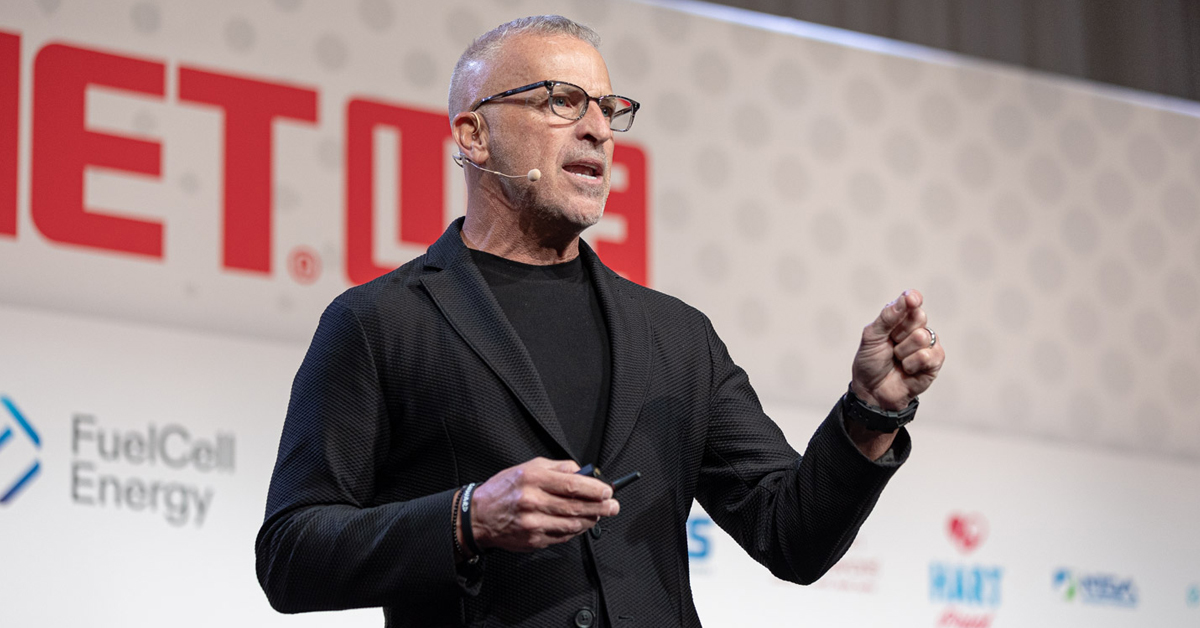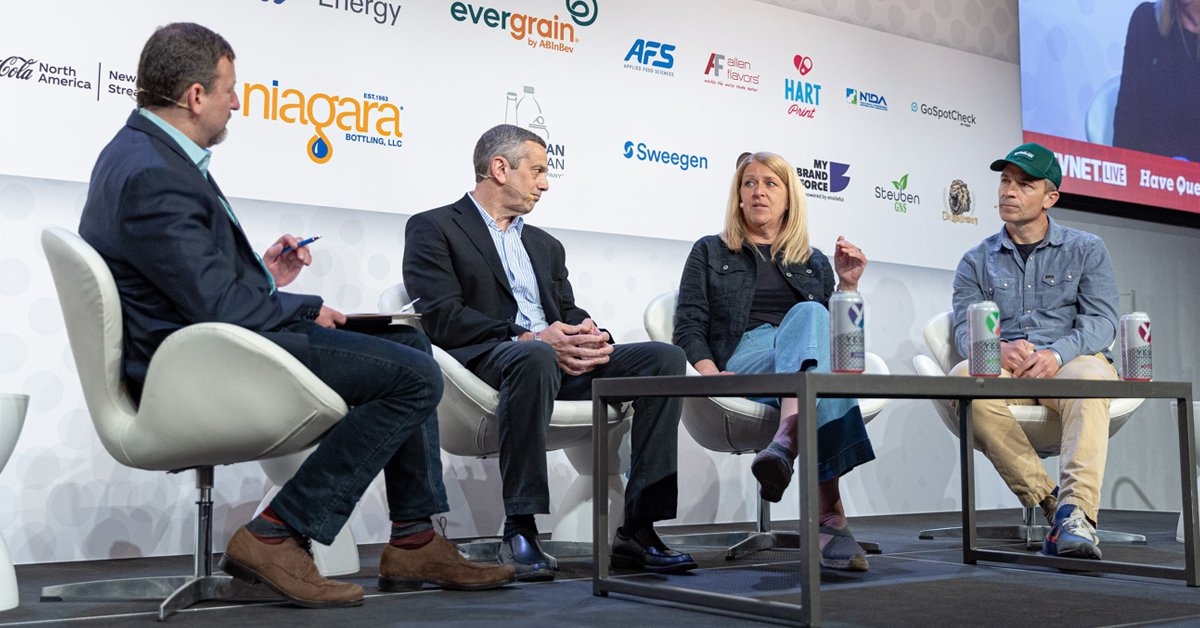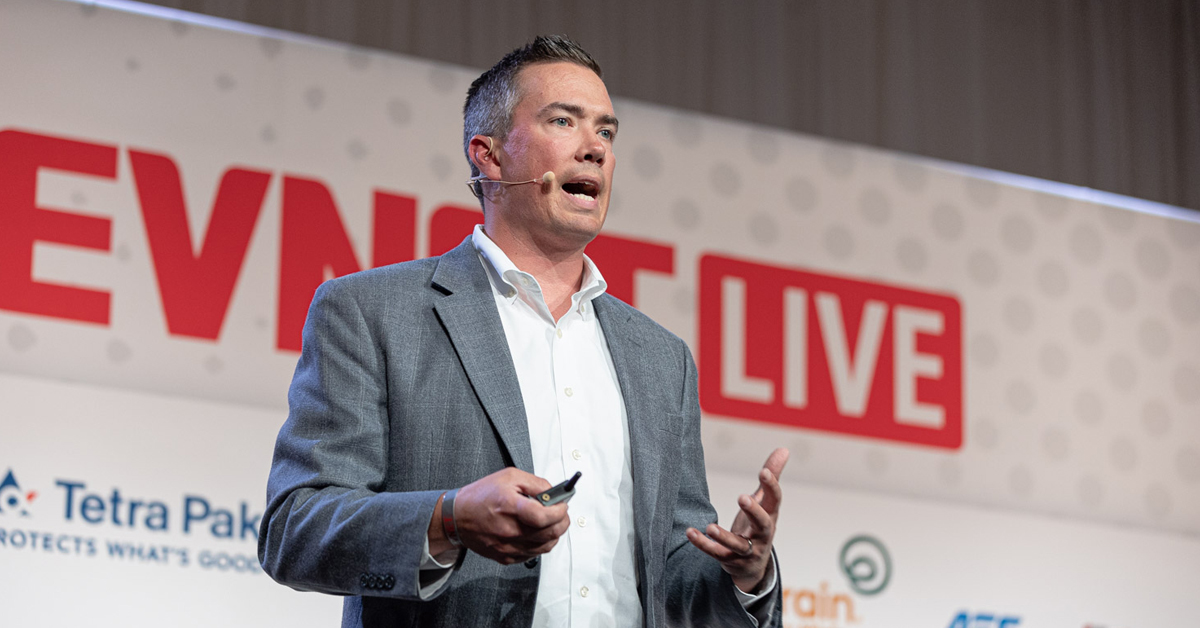
On the second day of BevNET Live Summer 2023 in New York City, a slate of speakers and panelists spoke about building successful beverage brands. Among them were representatives from both Whole Foods Market and Walmart gave advice on how to win on the shelf in nationwide retailers, as well as a number of founders at all stages of growth who told their stories providing lessons on everything from building a business to fundraising and aligning a brand in advantageous partnerships. The day covered a lot of ground tapping into the expertise of distributors and an insightful discussion of how the non-alcoholic category is converging more and more with the growing RTD cocktail set.
The Importance of Building Culture and Being “Constructively Dissatisfied”
Industry veteran Scott Miller took to the stage on Thursday with an arsenal of advice for beverage entrepreneurs striving to create successful brands.
“An entrepreneur is really about having a vision when nobody else does and when really nobody else believes,” Miller told the audience Thursday morning.
The former CEO of Essentia and current CEO and co-founder of enhanced water brand YESLY said that over the course of his 30 years as a beverage industry executive one of the most important things he has learned is that understanding “what we stink at is a competitive advantage.”
Understanding one’s weaknesses and where there are gaps in a business allows an entrepreneur to achieve better results, Miller said. He calls it being “constructively dissatisfied” which starts with being comfortable with one’s vulnerability as a leader.
“When your team sees [a] leader vulnerable and he wants to get better, people feel it’s safe to get better. They want to get better. And then everyone starts sharing as an organization how you get better and it becomes actually something that’s a great virus in the organization,” he added.
This has translated into Miller’s obsession with building good culture in his various pursuits in the beverage industry. The culture needs to have a purpose and that starts with creating institutional buy-in from all team members, Miller said. This will allow an organization to have communal goals, or the “pillars,” which bring a higher probability of success to a brand.
At Yesly, there are four pillars that guide the company’s culture: People, Consumer, Entrepreneurial Spirit and a Northstar, or a goal. In the case of Yesly, it is to become the number one enhanced still water beverage in North America.
When asked how it has been to build a new brand from the ground up for the first time, Miller said “we’re having a blast. It’s a lot of fun.”
He has been focused on building a “learning culture” and focusing on what matters for the long term, he said. “There is no rush for Yesly. There’s only a rush to do things right.”

Why RTD Cocktail Brands Need To Be Slow Sippers
Why are many beverage companies starting to build out ready-to-drink cocktail brands within their portfolios? The easy answer, according to Matt Hughes, former president and GM at The Coca-Cola Company’s Venture and Emerging Brands, is that consumers are asking for it. Yet, for beverage makers like Spindrift and Boston Beer, which spoke alongside Hughes on a panel yesterday, creating a lane in this highly competitive and fast-moving category is harder than just launching a new product and requires patience and the ability to pivot.
Boston Beer Company had to relaunch Twisted Tea three different times before it got the right branding and marketing strategy for the product, said Lesya Lysyj, CMO at Boston Beer Company.
“We thought it was going to be a high-end tea. We thought it was going to be like a hard Snapple and then we realized that it was construction workers in Maine who were actually consuming all of it,” she said.
Being flexible and having patience to understand the target market was important to building Twisted Tea into the biggest brand in Boston Beer’s portfolio, Lysyj added, “it’s twice as big as Truly [Hard Seltzer] and four times as big as Sam Adams beer.”
What is becoming apparent now is that the non-alcoholic beverage category (soda, seltzers, teas, etc.) is starting to lead the convergence into the mixed drink set. As consumer demand has grown for hard seltzers, canned cocktails and alcoholic RTDs, more non-alc brands are leaning into the category.
Hughes explained that Coke has been able to leverage its brand awareness and household penetration to jump into the RTD alcohol category. By utilizing partnerships with alcohol brands like a spirits-based RTD Jack and Coke, the company has been able to further diversify itself to its core consumers who have been using Coke as a mixer for years.
Yet, all three panelists emphasized that patience is really the key to this strategy.
In the case of Spindrift, it took 10 years to just get its core product line correct, said founder and CEO Bill Creelman, so to diversify itself into hard seltzers took careful planning, a desire to step outside of the brand’s comfort zone and a slow, deliberate launch to make sure the brand was “testing and learning” what its consumers wanted.
“Tread very carefully” was the advice Lysyj gave the crowd. “The biggest mistakes we’ve made [at Boston Beer] is we go too fast, we get too excited, and we go too quickly.”

Additional Day Two Highlights:
- Whole Foods Market category managers Kadijah Wellons and Charlie New explained that it is not only difficult to navigate which functional and nutritional supplement beverages to bring into stores but also where to place them. The key is finding the best need state for Whole Foods consumers and balancing that with brands that tell “compelling stories” to draw in customers.
- On the distributor panel Thursday, Chuck Casano at Hi-Touch Libations said the most important quality he looks for in a brand is a founder who is “hungry and present” because they will solve a lot of problems and be unafraid to get involved in the marketing strategy of moving drinks off shelves for the distributor.
- The founders of The Ryl Company, G.O.A.T. Fuel and The Bad Tea Co. discussed how having a firm grasp of all aspects of a beverage company’s business from understanding margins to a detailed go-to market strategy to being honest about challenges are some of the most important tools in seeking investment during tougher economic conditions. “Having realistic expectations” of a company’s short and long term potential leads to productive conversation with investors, said The BAD Tea Co. co-founder Rohan Tangri.
- Walmart VP/DMM of Beverages Will McDonald launched the afternoon session talking about how the huge retailer has started to shift its priorities to bringing in smaller, innovative beverage brands as it has seen its consumer base start to shift towards a younger demographic. This has played out in how the company views and markets through its digital and ecommerce platforms which grew 27% in Q1 this year.
- Three investors that are focused on brands in the proof of concept stage discussed some of the key metrics they look for when talking to brands and how building a relationship between founder and VC can be one of the most important parts of an investment partnership.
- The co-founders of zero-sugar lemonade and tea brand Swoon closed out Day 2 by explaining how the brand has been unafraid to “shoot its shot” in going after high-profile partnerships with influencer Emma Chamberlain and the upcoming Barbie movie. Swoon has been successful in these brand-aligned partnerships by staying authentic to the company ethos, using 360-degree activations and making unexpected moves.